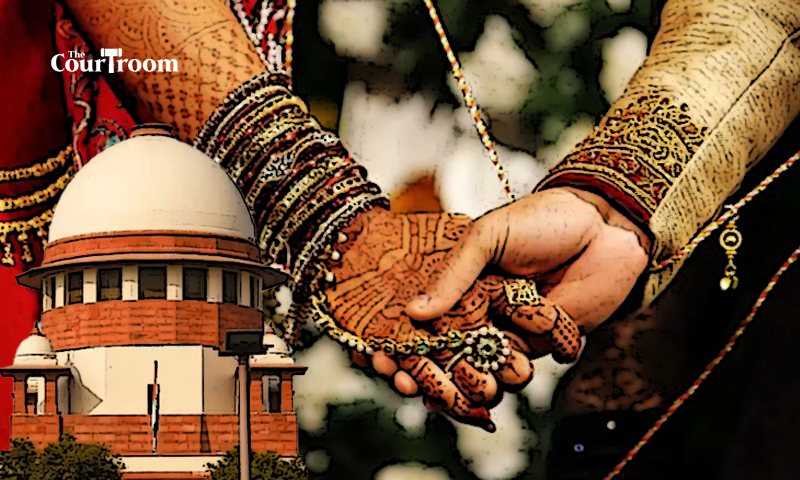The Supreme Court has ruled that a Hindu marriage is not considered valid unless it is conducted with the necessary ceremonies.
A panel comprising Justices B.V. Nagarathna and Augustine George Masih emphasized that a Hindu marriage is regarded as a ‘samskara’ and a sacrament, deserving recognition as a cherished institution of immense importance within Indian society.
The Supreme Court remarked that a Hindu marriage should not be treated as a frivolous occasion for entertainment or profit, stressing that it cannot be acknowledged without a valid ceremony under the Hindu Marriage Act. Justices B.V. Nagarathna and Augustine George Masih reiterated that a Hindu marriage is a sacred ‘samskara’ and sacrament, underscoring its significant role as a valued institution in Indian society. In a recent ruling concerning two trained commercial pilots seeking a divorce decree without a proper Hindu marriage ceremony, the Court urged young individuals to deeply contemplate the sanctity of marriage before entering into it, emphasizing its revered status in Indian society.
“A marriage is not an event for ‘song and dance’ and ‘wining and dining’ or an occasion to demand and exchange dowry and gifts by undue pressure leading to possible initiation of criminal proceedings thereafter. A marriage is not a commercial transaction. It is a solemn foundational event celebrated so as to establish a relationship between a man and a woman who acquire the status of a husband and wife for an evolving family in future which is a basic unit of Indian society,” the Bench said.
Describing marriage as sacred due to its role in fostering a lifelong, dignified, equal, consensual, and healthy union between two individuals, the Bench highlighted that Hindu marriage enables procreation, strengthens family bonds, and promotes a sense of unity within different communities.
“We deprecate the practice of young men and women seeking to acquire the status of being a husband and a wife to each other and therefore purportedly being married, in the absence of a valid marriage ceremony under the provisions of the (Hindu Marriage) Act such as in the instant case where the marriage between the parties was to take place later,” the Bench said.
In its ruling dated April 19, the Bench stated that if a Hindu marriage is not conducted in adherence to the prescribed rites or ceremonies, such as the ‘saptapadi’ (where the groom and bride take seven steps together before the sacred fire), it cannot be recognized as a valid Hindu marriage.
“We further observe that a Hindu marriage is a sacrament and has a sacred character. In the context of saptapadi in a Hindu marriage, according to Rig Veda, after completing the seventh step (saptapadi) the bridegroom says to his bride, ‘With seven steps we have become friends (sakha). May I attain to friendship with thee; may I not be separated from thy friendship’. A wife is considered to be half of oneself (ardhangini) but to be accepted with an identity of her own and to be a co-equal partner in the marriage,” it said.
In its analysis, the Bench underscored that marriage in Hindu Law is regarded as a sacrament or ‘samskara’, serving as the cornerstone for establishing a new family. It emphasized, “There is nothing like a ‘better-half’ in a marriage but the spouses are equal halves in a marriage.”
The Bench also emphasized that a Hindu marriage is not a platform for frivolous indulgence or commercial transactions, stating, “A marriage is not an event for ‘song and dance’ and ‘wining and dining’ or an occasion to demand and exchange dowry and gifts by undue pressure leading to possible initiation of criminal proceedings thereafter. A marriage is not a commercial transaction.
It is a solemn foundational event celebrated so as to establish a relationship between a man and a woman who acquire the status of a husband and wife for an evolving family in future which is a basic unit of Indian society.”
Share your news, articles, deals, columns, or press releases with us! Click the link to submit and join our platform today.


